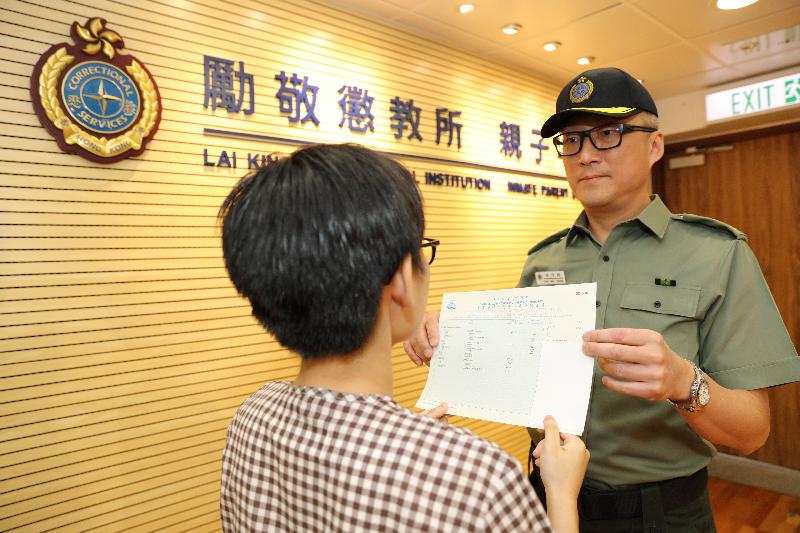LCQ10: Programmes for training educational psychologists
Following is a question by the Hon Dennis Kwok and a written reply by the Secretary for Education, Mr Kevin Yeung, in the Legislative Council today (July 11):
Question:
It has been learnt that educational psychologists (EPs) play a rather important role under the policy on integrated education. Their tasks include conducting psycho-educational assessments for children suspected to have special educational needs, as well as providing counselling services and accommodation arrangements for them. At present, the University of Hong Kong and the Hong Kong Polytechnic University take turn each year to run local master degree programmes for training EPs, which are funded by the University Grants Committee (UGC). Meanwhile, the Government announced in the 2016 Policy Address that it would enhance the School-based Educational Psychology Service by progressively improving the ratio of EP to school to 1:4 in respect of public sector primary and secondary schools which admit a large number of students with special educational needs. As a result, the demand for EPs will increase gradually. In this connection, will the Government inform this Council if it knows:
(1) (i) the number of places, (ii) the number of graduates, (iii) the unit cost and (iv) the amount of subsidy, in respect of UGC-funded educational psychology pragrammes in each of the past five years;
(2) the criteria adopted by UGC for vetting and approval of funding applications from tertiary institutions for (i) running new master degree programmes and (ii) increasing the number of places of those programmes, as well as the procedures concerned; and
(3) whether UGC has received funding applications from the two aforesaid institutions for increasing the number of funded places of their master degree pragrammes in educational psychology; if UGC has, of the details; whether UGC will invite and provide funding to other tertiary institutions to run similar programmes; if UGC will, of the details; if not, the reasons for that?
Reply:
President,
Our reply to the question raised by the Hon Kwok is as follows:
(1) The approved student intake and the number of graduates of the University Grants Committee (UGC)-funded educational psychology programmes for 2012/13 to 2016/17 academic years are tabulated as follows:
| Academic year | Approved student intake |
| 2012/13 | 25 |
| 2013/14 | 15 |
| 2014/15 | 25 |
| 2015/16 | 15 |
| 2016/17 | 25 |
| Year of graduation | Number of graduates |
| 2013 | 12 |
| 2014 | 26 |
| 2015 | 15 |
| 2016 | 19 |
| 2017 | 12 |
Note: The above figures cover Master of Educational & Child Psychology programme offered by the Hong Kong Polytechnic University and Master of Social Sciences (Educational Psychology) programme offered by the University of Hong Kong.
Funding for individual UGC-funded programmes is subsumed under the block grant to universities without precise requirements by the UGC as to how it should be spent. Universities may allocate funds internally to programmes of various disciplines at different levels as they see fit. The UGC is therefore unable to identify or provide information about the actual subvention on specific programmes.
That said, the UGC has derived the average student unit cost of UGC-funded Taught Postgraduate (TPg) places, which are based on the actual costs incurred on UGC-funded expenditure items and reported by universities. The said average unit cost is not equivalent to the actual subvention or expenditure on specific TPg programmes. The average student unit costs of UGC-funded TPg places for the 2013/14 to 2017/18 academic years are as follows:
| Academic year | 2013/14 | 2014/15 | 2015/16 | 2016/17 | 2017/18 |
| Average student unit cost ($) | 202,000 | 215,000 | 230,000 | 232,000 | Not yet available |
Note: The bulk of the student unit cost of a TPg place is subsidised by Government subvention with the remainder funded by income from tuition fees (i.e. $42,100 per student per year).
(2) and (3) The UGC and the UGC-funded universities conduct a planning exercise and recurrent grant assessment on a triennial basis. Proposals of launching new UGC-funded programmes or making changes to the number of intake places of existing programmes are usually raised by the UGC-funded universities in the context of the triennial planning exercise.
The planning exercise for 2019/20 to 2021/22 triennium is currently underway. Pursuant to the Government's advice on manpower requirements, the UGC-funded universities have submitted planning exercise proposals (PEPs) to the UGC. The UGC Sub-Group on Planning Exercise met with individual universities in May 2018 to exchange views on the PEP. Before making relevant recommendations to the Government, the UGC will fully consider the needs of society and the government's advice on manpower requirements. Later this year, the UGC will submit its recommendations on allocation of student places and the associated funding for the 2019/20 to 2021/22 triennium to the Government. The Government will announce the indicative student number targets of the 2019/20 to 2021/22 triennium as and when appropriate.

